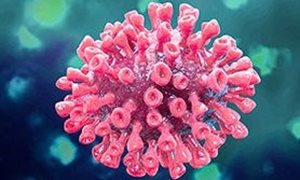 The first injection in three volunteers is the first official step in the human trial programme in the Leiden University Medical Center (LUMC) and the Radboudumc in Nijmegen investigating a promising malaria vaccine, Sanaria® PfSPZ-GA1 Vaccine, manufactured by biotechnology firm Sanaria. The initial objective is to test whether the vaccine is safe and does not cause serious side effects.
The first injection in three volunteers is the first official step in the human trial programme in the Leiden University Medical Center (LUMC) and the Radboudumc in Nijmegen investigating a promising malaria vaccine, Sanaria® PfSPZ-GA1 Vaccine, manufactured by biotechnology firm Sanaria. The initial objective is to test whether the vaccine is safe and does not cause serious side effects.
Unique clinical trial
Jona Walk, researcher in the department of Medical Microbiology at the Radboudumc: “We have demonstrated the vaccine does not develop to infectious parasites in human liver cells and in experimental animals, so I am confident it will be safe in volunteers. However, this must be assessed in a clinical trial.” However, she continues, “Although vaccines based on radiation attenuated malaria parasites have been studied in multiple clinical trials, this is the first clinical trial assessing an injectable genetically modified malaria vaccine.”Scientists involved in the development of the genetically attenuated parasite in the vaccine, Robert Sauerwein (Radboudumc), Ben van Schaijk (Radboudumc), Chris Janse (LUMC) and Shahid Khan (LUMC) explain that the difference is that the parasite in this new vaccine has been attenuated by deleting two genes instead of by irradiating the parasite.
Extremely excited
“We are extremely excited to be working with our Dutch colleagues to initiate the first clinical trial of injectable, genetically attenuated malaria vaccine based on our platform technology-aseptic, purified, cryopreserved PfSPZ,” says B. Kim Lee Sim, executive VP of manufacturing at Sanaria.Development of the genetically attenuated parasite by the LUMC, Radboudumc and the Sanaria team was supported by a grant by TI Pharma (the Netherlands); manufacture of PfSPZ-GA1 was supported by an SBIR grant from the National Institute of Allergy and Infectious Diseases, part of the National Institutes of Health (USA). The clinical trial is supported by LUMC and Radboudumc.
Related news items

Rebecca Halbach receives idea generator grant to fight mosquito transmitted viruses
8 July 2020Rebecca Halbach and Pascal Miesen have investigated in a collaborative project whether the treatment of mosquitoes with antiviral drugs can prevent the transmission of mosquito-transmitted viral diseases.
go to page
Invasive fungal infections in influenza and COVID-19
8 July 2020 The Aspergillus fungus is found in the lungs of many COVID patients. A parallel occurs with influenza patients, who often develop a serious fungal infection. Although such a serious fungal infection seems to occur less frequently in COVID-patients, alertness remains necessary, go to page
First clinical trial with genetically modified malaria vaccine completed
22 May 2020 In an innovative study, Radboudumc and LUMC jointly tested a candidate vaccine based on a genetically weakened malaria parasite. The results of this clinical trial, published in Science Translational Medicine, show that the vaccine is safe and elicits a defense response against a malaria infection. go to page
New step in the development of a vaccine against malaria
22 May 2020 A new vaccine based on rodent malaria parasites achieved a 95% reduction in infection of the liver in humans. An international consortium publishes the results in Science Translational Medicine. go to page
Stuttering DNA orchestrates the start of the mosquito’s life
9 April 2020 A certain type of junk DNA that is found in mosquitoes and which repeats itself dozens of times, known as ‘satellite DNA’, has now been shown to play an essential role in the early development of mosquito embryos. Ronald van Rij and colleagues published their findings in Nature. go to page
NWO Open Competition Domain Science - XS grant for Ronald van Rij and Jenny van der Wijst
21 January 2020NWO Domain Science has awarded Ronald van Rij, theme Infectious diseases and global health and Jennny van der Wijst, theme Renal disorders an XS grant. The XS category emphatically strives to encourage curiosity-driven and bold research involving a relatively quick analysis of a promising idea.
go to page